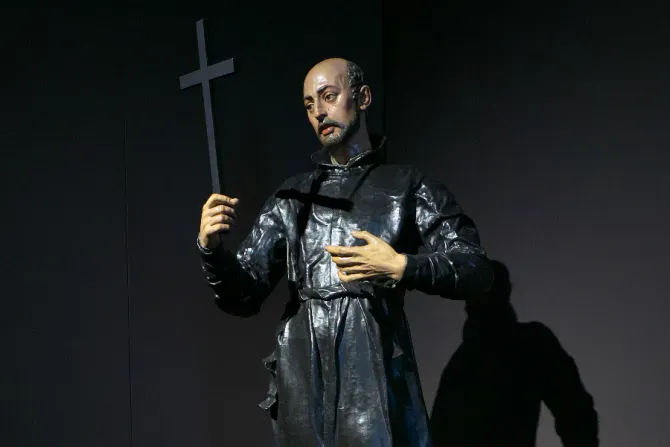He was filled with a zeal to convert others who were blind to God’s love, as he had been. He even made it all the way to the Holy Land, preaching about Jesus Christ to the Muslims.
Throughout his travels, Ignatius maintained a deep, contemplative prayer life. He realized the importance of maintaining one’s relationship with God amid the bustle and hurry of life.
Between the years 1522 and 1524, Ignatius composed the now globally practiced “Spiritual Exercises” as a guide to maintaining one’s spiritual health as one would exercise his or her physical body.
Just as soldiers must constantly exercise to maintain a high degree of physical prowess and ability, so too must God’s warriors exercise in their spiritual life.
Though his days of fighting for earthly kings and armies were over, his days as a soldier for God had just begun.
(Story continues below)
God’s special forces
At the age of 38, Ignatius began attending the University of Paris to learn more about God. It was there that he met a fellow Basque noble, Francis Xavier, and another friend who in 2013 would be canonized as St. Peter Faber.
Struck by Ignatius’ sound teachings and holy example, Francis and Peter, along with a few other companions, formed the Society of Jesus, now known as the Jesuits.
Alongside Francis Xavier, Ignatius was ordained a priest in 1537.
In 1540, the Jesuits received official papal approval from Pope Paul III.
The society quickly became the pope’s response force. He sent them to preach first to the most difficult regions of Europe, where Protestantism was spreading like wildfire. In no small way, the Jesuits were responsible for stemming the tide of Lutheranism, Calvinism, and many other heresies that were growing at rapid rates.
From its beginnings, the Jesuits, as established by Ignatius and his companions, held a militaristic mindset of dedication and service to God and his Church.
Besides taking the usual religious vows of poverty, chastity, and obedience, members of the society would take a fourth vow: “obedience with regard to mission.” By this, the original Jesuits vowed to be ready to accept whatever mission God, through the pope, called them to.
These vows sent Jesuits preaching God’s message to every corner of the earth, even to the most dangerous places. Jesuit priest Father Isaac Jogues was brutally tortured by being partially flayed alive and finally beheaded by Iroquois natives in the forests of Canada in 1646.
For centuries, Ignatius’ Jesuits were unafraid to boldly take the Gospel of Christ wherever they were called.
In a way, Ignatius’ new order could have been considered God’s “special forces.”
‘Ad Maiorem Dei Gloriam’
In 1541 Ignatius was elected the first superior general of the Jesuits, a position from which he led the order for the rest of his life.
Throughout his time leading the Jesuits, Ignatius would call on his brothers to be fearless and strong for the glory of God. He would tell the brothers to “go forth and set the world on fire.”
Another famous invocation of Ignatius to his brothers was his prayer:
To give, and not to count the cost, to fight, and not to heed the wounds, to toil, and not to seek for rest, to labor, and not to ask for any reward, save that of knowing that we do thy will.
Ignatius died on July 31, 1556, at the age of 64. Along with Francis Xavier, he was canonized a saint in 1609 and made the patron of retreats, the Jesuits, and, of course, soldiers.
Though he never achieved the glorious military victories he had dreamed of during his youth, Ignatius is considered a true soldier for Christ.
As the patron saint of soldiers, especially Catholic soldiers, he serves both as an intercessor for protection and safety in the face of danger and also as a reminder for every soldier that our true mission is to serve God.
Ignatius’ life can perhaps best be summed up by his most famous saying: “ad maiorem Dei gloriam” — that is, “all for the greater glory of God.”








